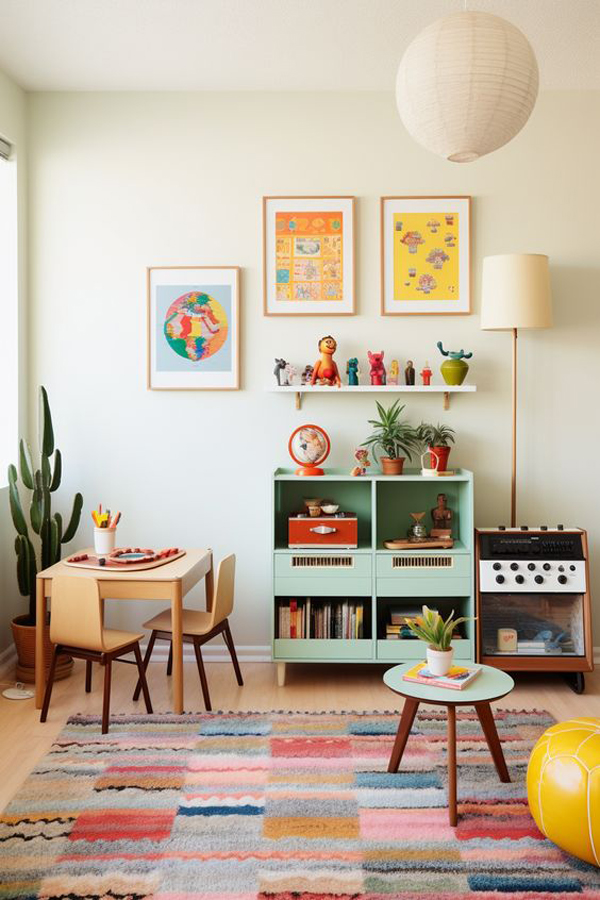
Building a special room for children to play is every parent’s dream. It’s an exciting opportunity to foster creativity, learning and create excitement about what they want. A playroom that is designed as well as possible will invite children into a world of imagination where they can explore, play, and socialize with their friends and siblings.
When you’re considering setting up your kids’ dream playroom, it’s important to add a few elements that will make the playroom fun for the kids and functional for the family. If you happen to have a teenage child at home who is starting to develop, combining a playroom and a teenager’s room makes it a challenge in itself.
Here are some kids playroom ideas
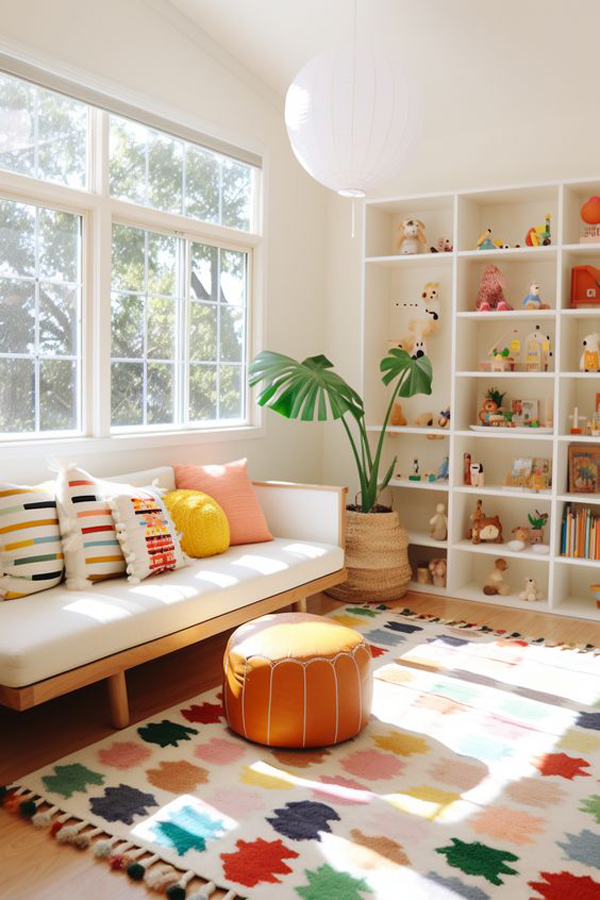
Set the layout of the playroom
When you design the right playroom, first arrange the layout and decoration of the children’s playroom. This is a top priority for safety while adding bright colors and interactive features to the room. Don’t forget the storage area! They will keep the room organized and make it easy for children to tidy up after playing. The goal is to create a functional area that can mesh with the child’s evolving interests and needs. This attention to detail is also important in a playroom. Both must be balanced between educational and recreational items, for example a bookshelf filled with a variety of books to a corner dedicated to arts and crafts, each choice must aim to stimulate the senses and encourage the child’s developmental milestones.

Maximize every inch of space
A small space is not a barrier to building a functional playroom. To maximize space, choose vertical storage solutions that don’t take up much space. Installing shelves and hooks at kid-friendly heights allows easy access to toys and items your little one needs, while keeping the floor area clear for play. Functional furniture also saves more space, such as storage ottomans, benches with compartments in them, or tables equipped with hidden drawers.

Create a play zone
Setting up play zones for different types of activities can help keep the playroom organized and ensure children have dedicated spaces for different activities. For example, create a cozy nook for reading, an Arts and Crafts area with art supplies storage, and a puzzle zone for board games and puzzles. By designating specific play areas, children can easily find and interact with the toys and crafts they enjoy.

Choose functional furniture
When designing a playroom, choose furniture that comes with storage areas and serves a functional purpose. Some examples include modular shelves that allow children to customize storage to suit their space and needs, or bookshelves with attractive display edges that are easy to reach.
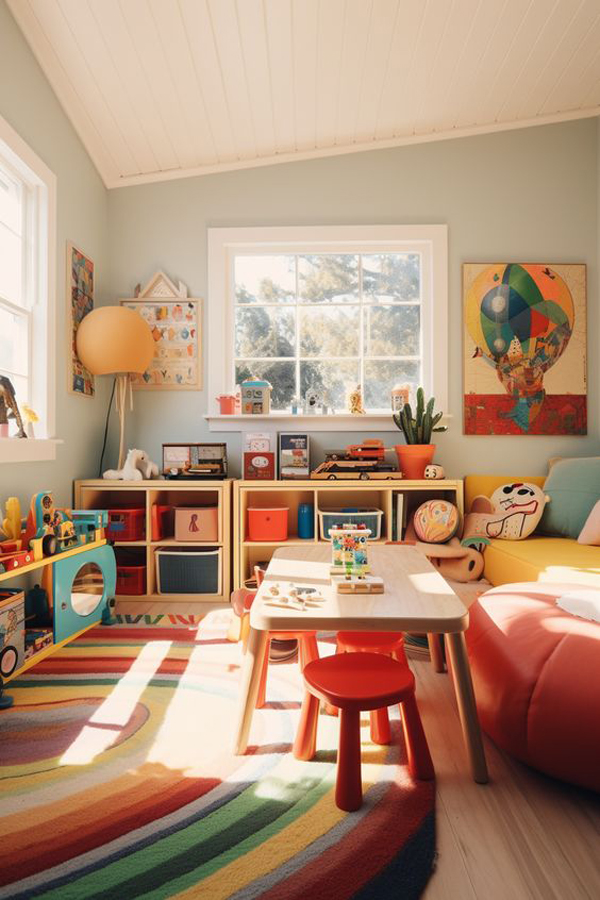
Attractive color scheme
Creating a playroom that is attractive to children involves choosing bright color schemes and creative decorations. These elements can stimulate creativity and set the stage for a more fun learning experience. From bright colors like blue, yellow, to green, or softer shades with pastel shades, let the kids choose their favorite color scheme.

Perfect lighting
Choosing the right lighting can transform a playroom from an ordinary space into an enjoyable experience. Soft, warm lighting creates a cozy and inviting atmosphere, while adjustable LED strip lights let kids explore a variety of colors. A table lamp with a character motif or string light will create an atmosphere and can function as a night light for your little one.
Get more playroom ideas that teens might also love below!

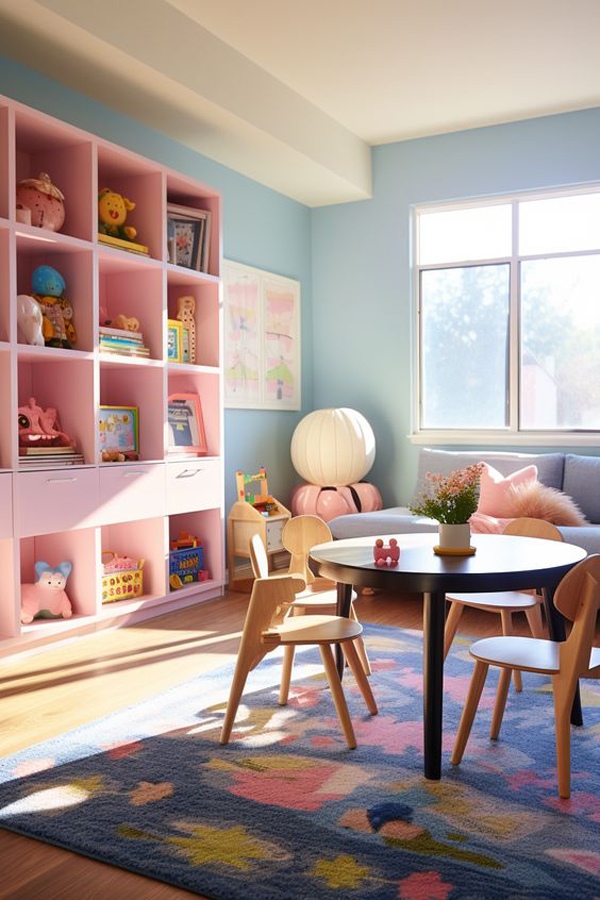
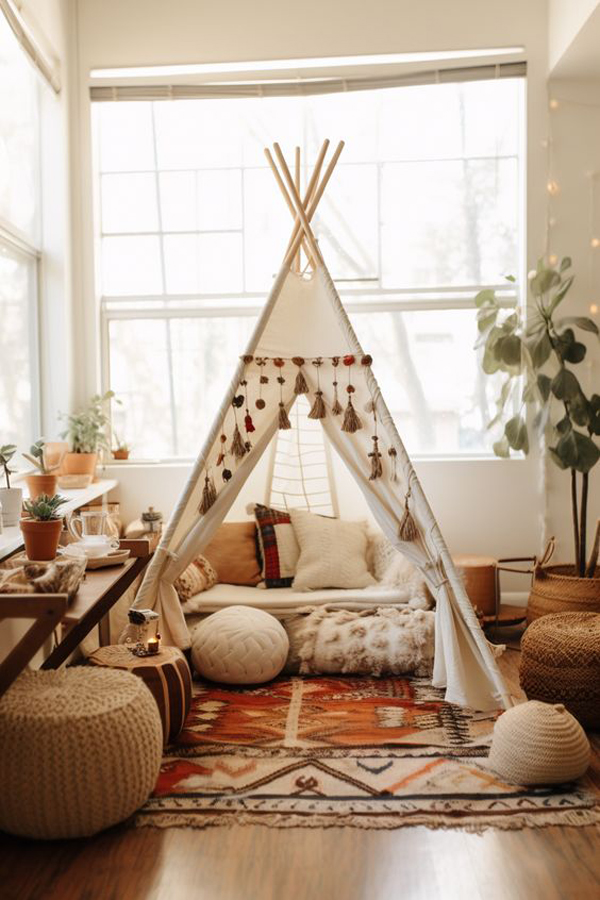

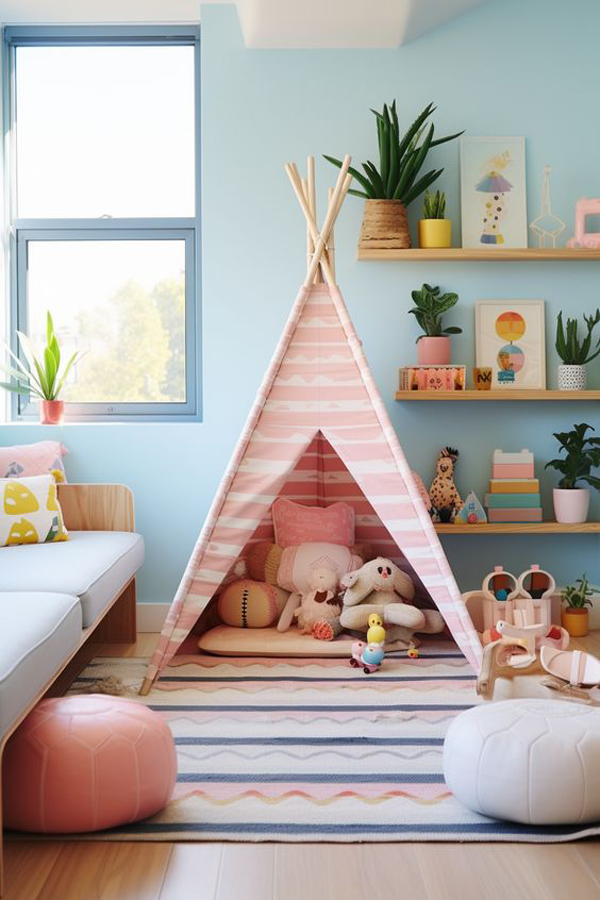
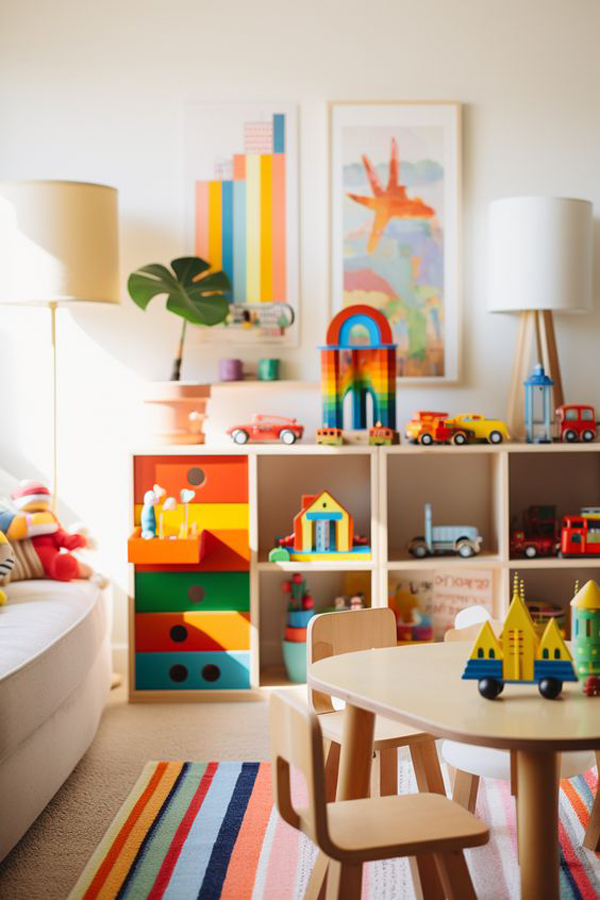

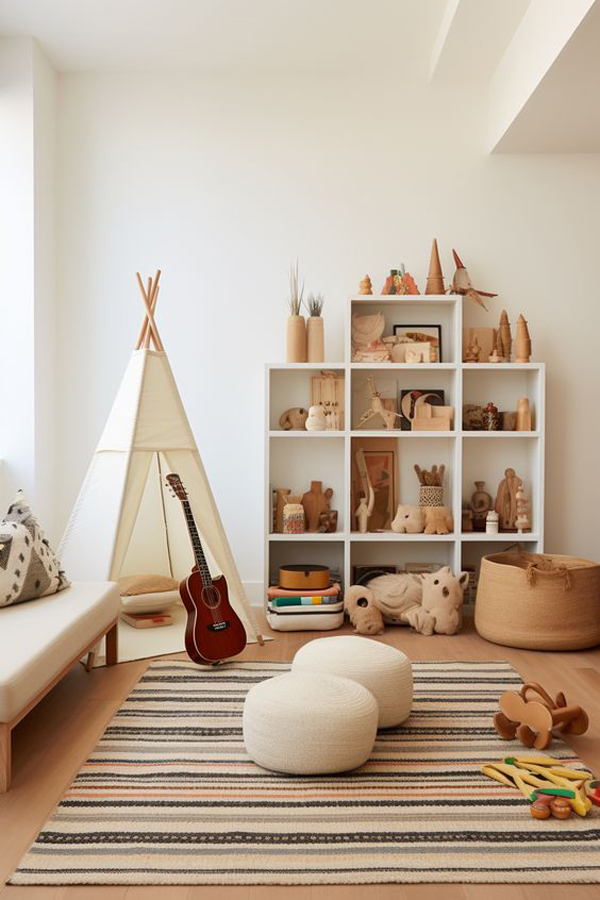
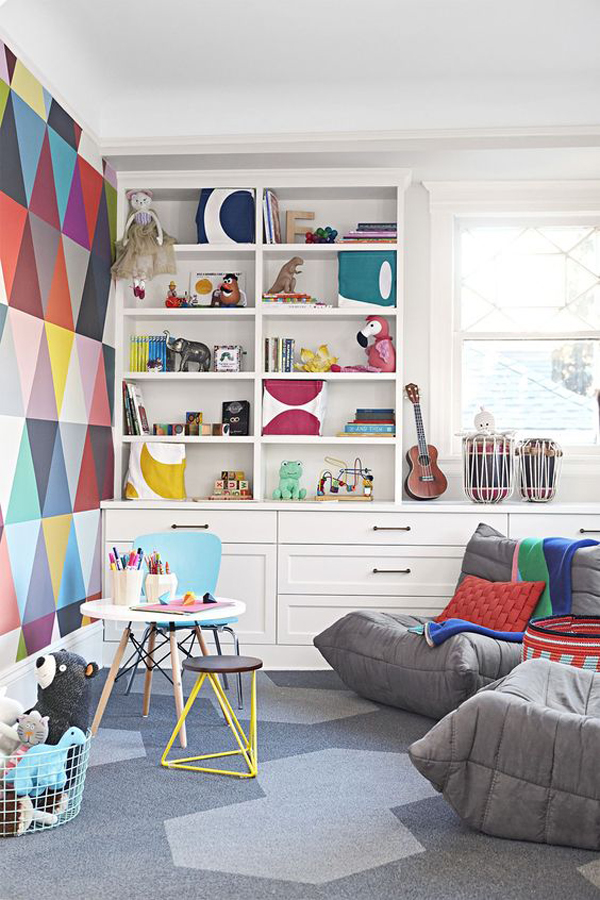
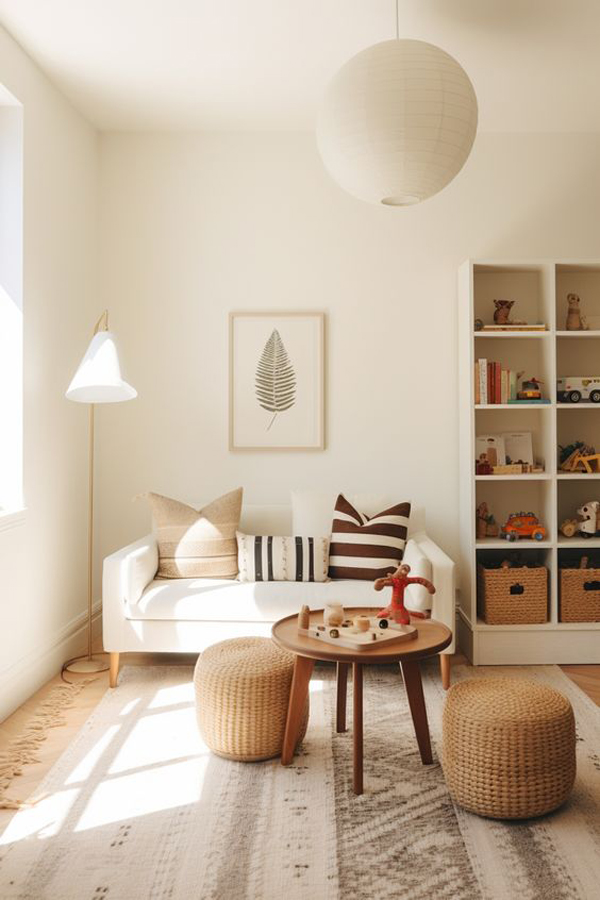
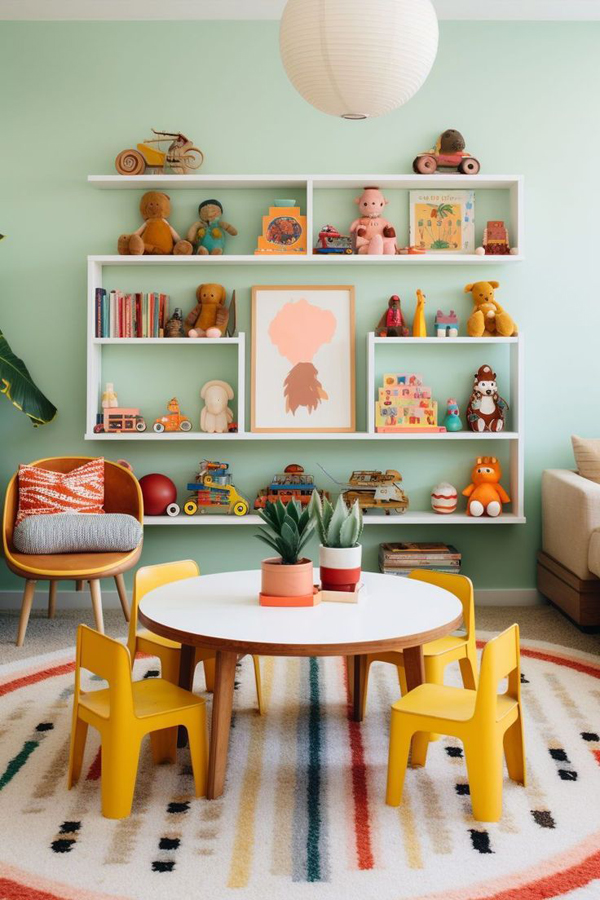
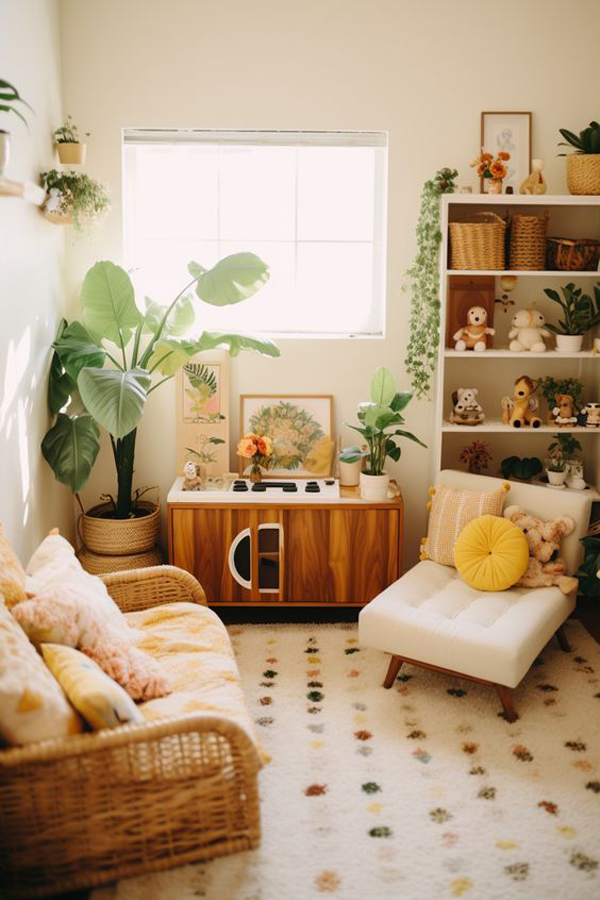
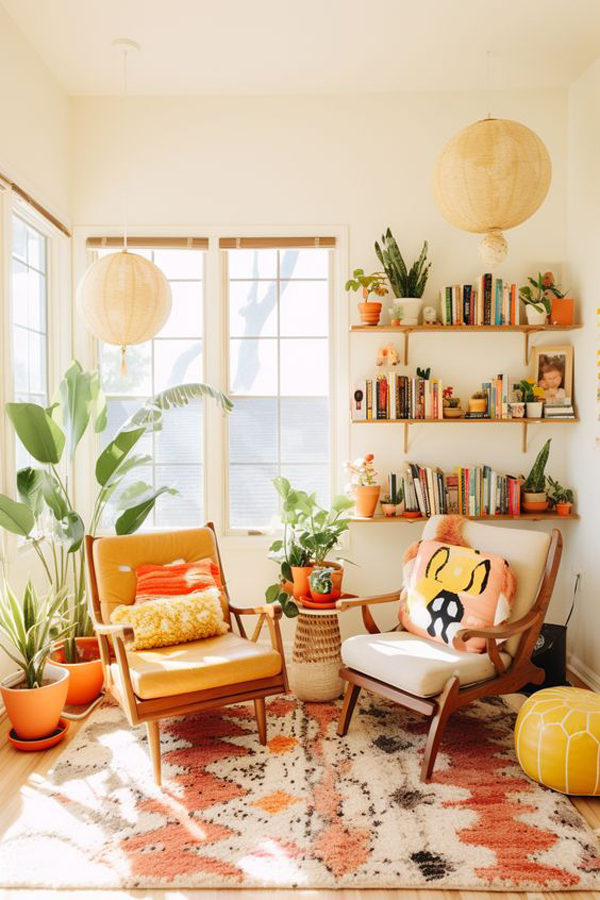



Reply